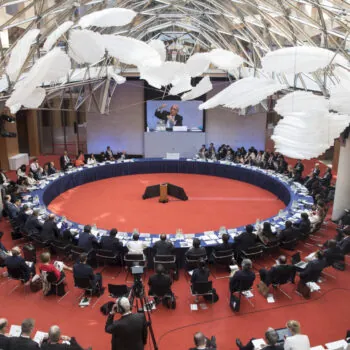Back in 1996, Nick Mabey co-authored the book ‘Argument in the Greenhouse: The international economics of controlling global warming’ based on research carried out at the London Business School centre for Economic Forecasting.
The back cover blurb for the book stated that:
This book adds a significant new contribution to the crucial climate change/global warming debate. Incorporating the key political and legal considerations into `real world’ applied economic analysis, the authors provide a unique focus on the wider political economy of the problem.
All the key issues of controlling climate change (costs, timing and degree of stabilisation, ecological tax reform, developing countries, and evolution of international agreements), are placed firmly within the current legal and political context, with state-of-the-art economic techniques introduced to analyse different policy proposals.
Covering both the developing and developed world, this book identifies important new policies to foster effective agreements on emissions and prevent global warming – realistic policies, likely to receive support at both international and domestic levels.
In the ten years since this book was published both the science and the economics of climate change have moved on considerably. Yet the main lessons of the book still hold:
- that the core of the problem lies in finding credible instruments to shift investment and technology patterns towards a low carbon economY
- that even though the cost of controlling climate change seems manageable, we know less about the economics of a low carbon transition than we think we do, and there is great need for better empirical understanding of how real markets actually respond to price signals.
- that setting credible incentives for innovation is what will deliver long term change, not shutting off demand by constantly raising carbon scarcity or prices.
- that the international bargain to control climate change can take many forms, but cooperation will work – even if imperfect – as long as all countries believe others are taking a credible share of the effort. Unfortunately, in the “climate negotiation game” the largest polluters have the biggest negotiating power and unless countries like the USA show leadership we are unlikely to reach climate agreement that preserves the interests of the poorest countries.
In the same period of time, our ability to access information via the internet has also come on in leaps and bounds – you can now read much of this book online thanks to Google Book Search.


